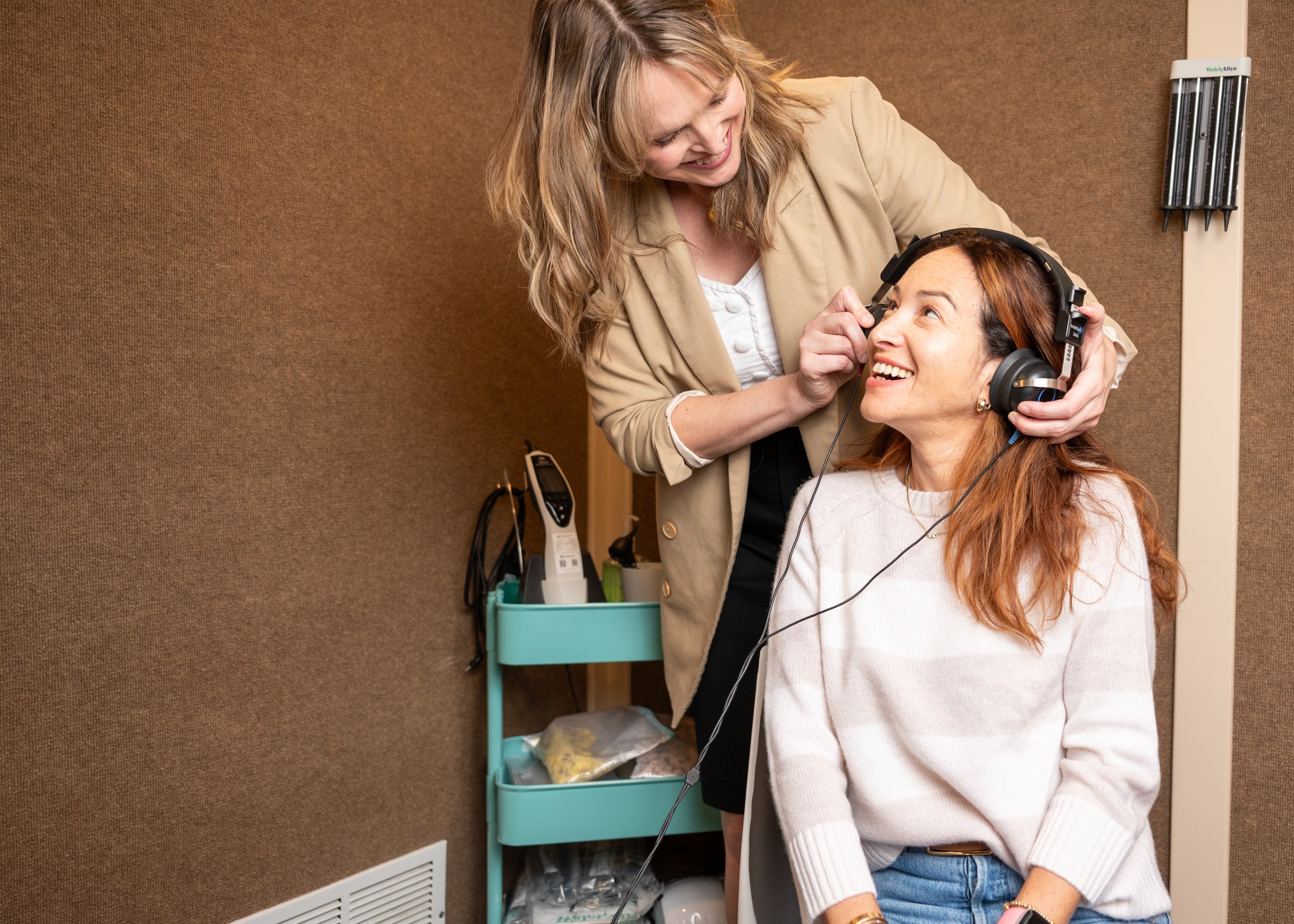
Auditory Processing
Overview
Here at Sound, we specialize in the assessment and treatment of CAPD. Because we have audiologists and speech language pathologists under one roof, we can provide comprehensive services all in one convenient place.
-
Central Auditory Processing Disorder (CAPD) can sometimes feel like hearing loss, even though hearing itself is normal. People with CAPD might find it tricky to follow directions, answer questions clearly, or thrive in busy settings like school, work, or home. It often goes hand-in-hand with challenges in attention, language, or learning, making it harder to make sense of what one hears. That’s where we come in!
-
The Sound Auditory Processing Program is designed to provide comprehensive care every step of the way. It starts with a central auditory processing evaluation with an audiologist and a language processing evaluation with a speech-language pathologist, and is followed by a meeting to share our findings with you. Our team works hand-in-hand to assess and treat CAPD, always following the gold-standard best practices set by the American Speech-Language-Hearing Association. We’re here to help you make sense of sound and succeed!
-
We are in-network with Blue Shield PPO (including Berkeley SHIP) and Cigna PPO, making it easy for us to bill these plans directly for you. We accept all other PPO plans as an out-of-network provider, providing you with detailed reimbursement statements (medical superbills) to help you with self-reimbursement.
Want to check your coverage? Reach out to your insurance provider and ask about coverage for these CPT codes, using diagnostic code ICD-10 H93.25.
Assessment
Auditory Processing Evaluation: CPT 92557, 92567, 92587, 92620, 92621 (4 units)
Language Processing Evaluation: CPT 92523
Listening & Language Findings: CPT 92507
Treatment
Speech Language Therapy: CPT 92507
Assessment
A collaborative team of audiologists and speech-language pathologists plays a crucial role in evaluating CAPD. Together, they identify the specific auditory processing challenges and any co-occurring written or oral language disorders - in order to identify areas for targeted intervention.
-
This evaluation is conducted by a Doctor of Audiology - an expert in auditory disorders who takes a thorough look at both the peripheral hearing system (through a hearing test) and the central auditory system, all within the controlled environment of a sound booth.
Using specialized subtests, we evaluate central auditory processing strengths and areas for improvement across key skills, including:
Monaural Low-Redundancy/Auditory Discrimination
Binaural Processing/Dichotic Listening
Temporal Processing
Our goal is to provide a clear picture of how you process sound in order to identify ways to support your success!
-
This appointment is with a Speech-Language Pathologist (SLP) - a communication expert who specializes in evaluating and identifying challenges with phonology, language processing, and reading. SLPs also pinpoint the functional communication difficulties that often accompany central auditory processing weaknesses and disorders. With their expertise, they help uncover the unique ways we can support and strengthen communication skills!
-
This meeting is with the assessing Speech-Language Pathologist (SLP), who will walk you through the findings, explain what they mean for you, and share our team’s personalized recommendations to support your success.
Treatment
Following the assessment, our team create a personalized, treatment plan for CAPD, which may include the following interventions.
-
An SLP designs speech-language therapy goals tailored to the unique challenges identified during the assessment, while also considering what matters most to the patient and their family. These goals are also informed by related evaluations, such as psychoeducational or neuropsychological assessments. Therapy focuses on compensatory strategies and language-based interventions to strengthen higher-order skills like memory, attention, and language comprehension. The ultimate aim? To enhance communication, listening abilities, and success in academic, work, and everyday life.
-
Why is a thorough assessment so important? It ensures that treatment is tailored to the specific challenges identified. Direct skills remediation uses targeted auditory training to address these unique needs, often through specialized, computer-based programs that build key auditory and language skills.
Some of the tools we may recommend include:
Acoustic Pioneer
CAPDOTS
Fast ForWord
HearBuilder
LACE AI Pro
-
Making adjustments to the listening environment can significantly improve access to sound and enhance the clarity of auditory signals. These environmental modifications focus on optimizing how auditory information is presented, including amplifying the sound signal and making changes to the environment to boost its clarity and audibility.


